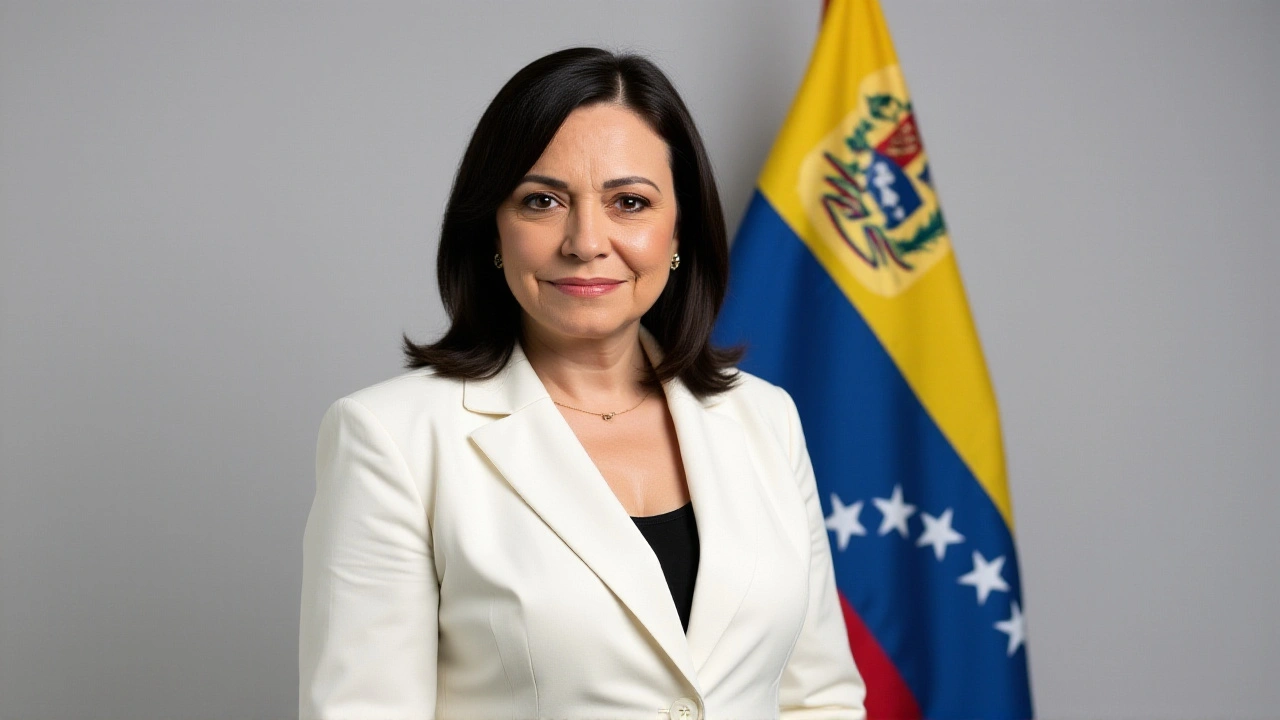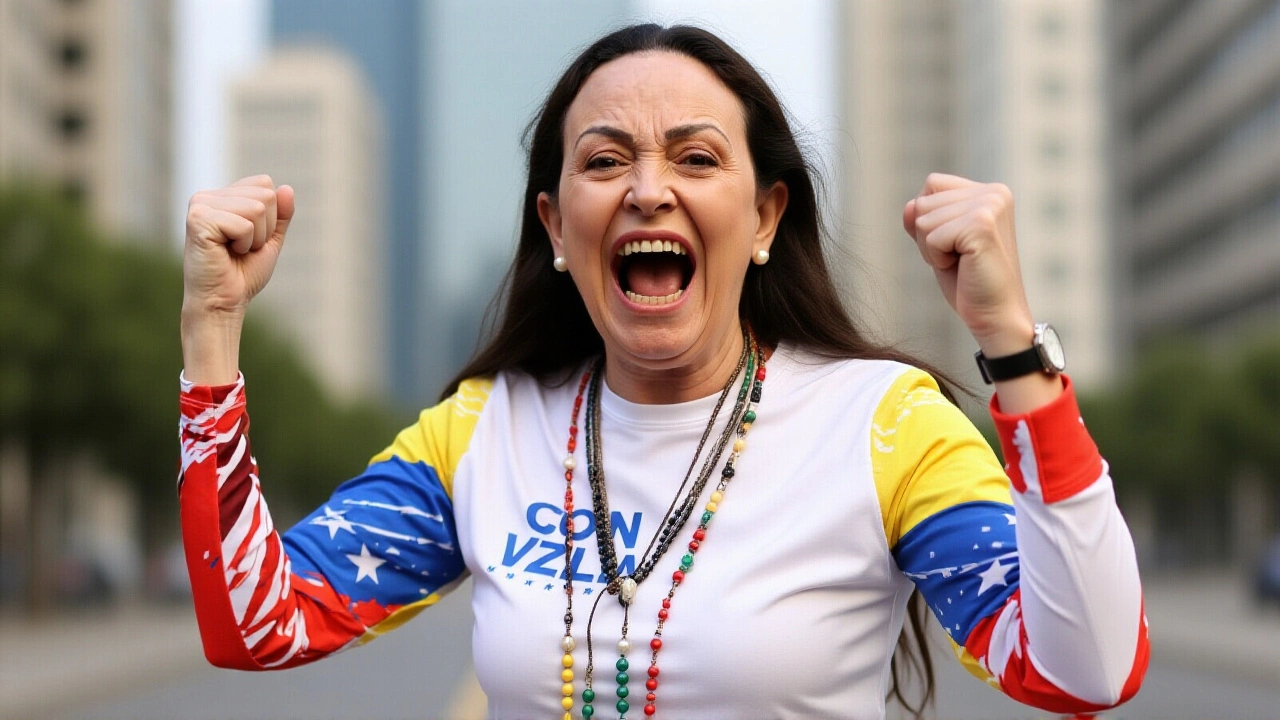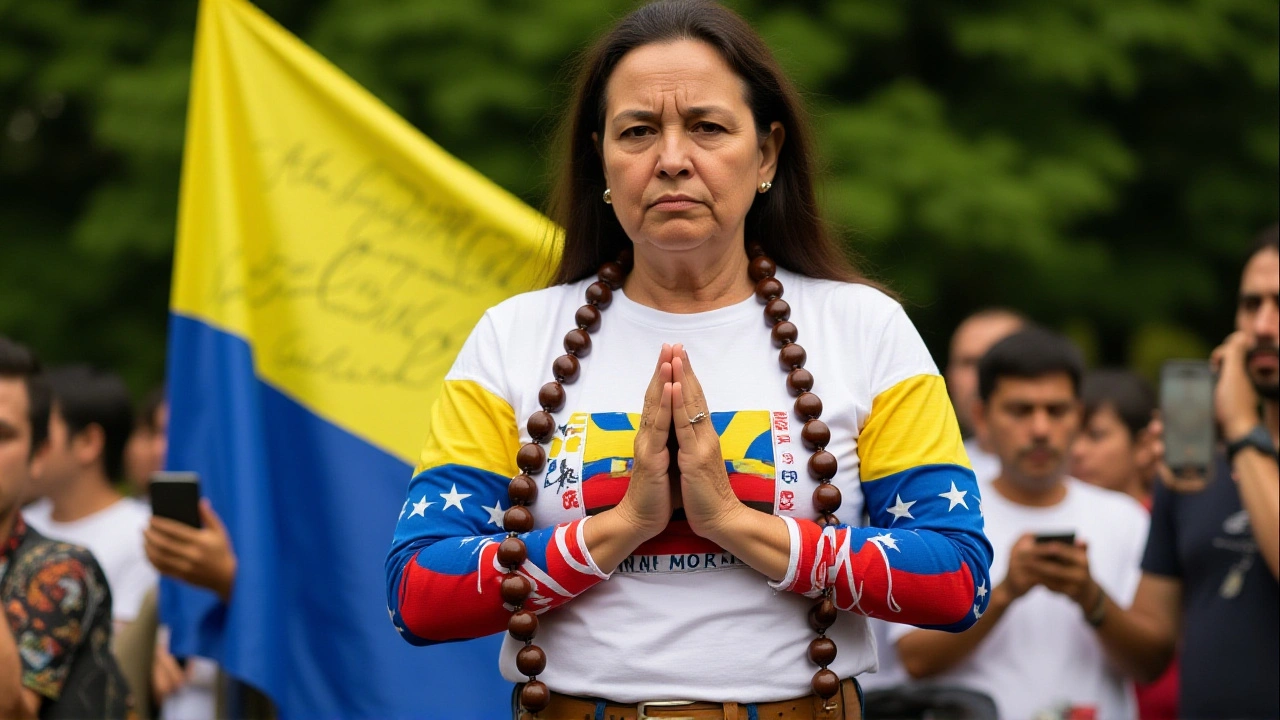When María Corina Machado, the 57‑year‑old opposition leader from Venezuela, answered a call from Kristian Berg Harpviken just before midnight on 10 October 2025, she barely managed a "Oh my god… I have no words." A few seconds later, the Norwegian Nobel Committee made public what the director of the Norwegian Nobel Institute had already whispered: Machado would receive the Nobel Peace Prize for 2025. The announcement, delivered from the Institute’s marble‑faced hallway in Oslo, Norway, instantly set social media alight and turned a decades‑long struggle for democratic rights into headline news worldwide.
Background of the Venezuelan Democratic Struggle
Since Hugo Chávez’s rise to power in 1999, Venezuela has oscillated between populist promises and economic catastrophe. Nicolás Maduro’s succession in 2013 deepened the crisis: hyperinflation topped 500 % in 2022, food shortages hit urban centers, and over 7 million people fled the country according to UN data. In that cauldron, Machado emerged as a vocal critic, first elected to the National Assembly in 2010 and later barred from running for president in 2019. Her engineering background—she graduated in systems engineering from Andrés Bello Catholic University—gave her a methodical edge that many described as "precision politics."
Internationally, Machado’s name surfaced alongside other dissidents: she won the Sakharov Prize in 2022 and the Václav Havel Human Rights Prize in 2023. Yet a Nobel nod had always seemed distant, until a coalition of human‑rights NGOs and academic institutions decided to push her candidacy forward.
Nomination Process and International Support
The road to the Nobel began on 16 August 2024, when the Inspira América Foundation, led by Marcell Felipe, teamed up with the rectors of four unnamed U.S. universities. Their joint letter highlighted Machado’s "tireless fight for peace in Venezuela and the world" and argued that rewarding her would spotlight an entire movement, not just a single activist. The nomination cited concrete figures: over 3.2 million Venezuelans had participated in recent protests, and more than 1,800 political prisoners were still behind bars.
Support didn’t stop in the United States. Former President Donald Trump publicly endorsed the nomination in a November 2024 interview, noting his administration’s sanctions against the Maduro regime as a "decisive factor" in keeping international pressure alive. While the reference sparked controversy among Trump’s critics, it underscored the bipartisan recognition of Venezuela’s democratic crisis.

The Nobel Announcement and Immediate Reactions
At 00:00 UTC on 10 October 2025, the Nobel press conference streamed live to millions. Harpviken, visibly excited, said, "In a few minutes it shall be announced here at the Nobel Institute that you will be awarded the Nobel Peace Prize for 2025." When Machado heard the words, she replied, "I am just part of a huge movement. I'm humbled, I'm grateful, and I'm honoured."
Robyn E. Hardy, assistant research manager at the Institute, later interviewed Machado. "I accept this as a recognition to our people, to the millions of Venezuelans that are anonymous and are risking everything for freedom, justice and peace," Machado said, adding that the award would amplify their call for a "just and peaceful transition from dictatorship to democracy."
Social media erupted: #MachadoNobel trended in 32 countries, and the Venezuelan diaspora organized candlelight vigils in Madrid, Miami, and Sydney. Inside Venezuela, however, state‑run media dismissed the prize as "foreign meddling," while opposition reporters captured scenes of cheering crowds in the streets of Caracas’s Libertador municipality.
What the Prize Means for Venezuela and Democracy
The Nobel Committee’s citation praised Machado for "her tireless work promoting democratic rights for the people of Venezuela and for her struggle to achieve a just and peaceful transition from dictatorship to democracy." Analysts note that this is the first time a Venezuelan has been honored with the prize, joining a short list that includes only 19 women overall.
Economist Dr. Laura Méndez of the Caracas Economic Forum explained, "The Nobel brings both symbolic and practical leverage. International donors are more likely to fund civil‑society projects when a laureate can spotlight the cause."
In concrete terms, the prize includes 11.0 million Norwegian kroner—roughly $1.05 million USD at October 2025 rates. Machado announced she would channel a portion of the funds to support humanitarian NGOs operating in border regions, while the remainder would form a scholarship trust for Venezuelan students forced into exile.
Critics, however, warn that a Nobel alone cannot topple an entrenched regime. "Sanctions, diplomatic pressure, and internal mobilization are still needed," said political scientist Javier Ortega of the University of Chile. Still, the award has already forced the Maduro government to acknowledge the opposition’s legitimacy in a rare televised statement.

Looking Ahead: Ceremony and Future Prospects
The formal award ceremony is set for 10 December 2025 at Oslo City Hall, where Machado will receive a diploma, a gold medal, and the monetary award. Security will be tight; the Nobel Peace Center has hired over 200 private guards after a recent threat targeting laureates.
Beyond the ceremony, the question remains: how will this momentum translate into tangible change? Human‑rights groups have outlined a three‑phase plan: (1) amplify pressure on the Maduro regime through targeted sanctions, (2) support free‑press initiatives inside Venezuela, and (3) facilitate a negotiated transition with international mediators.
For Venezuelans watching from cramped apartments, refugee camps, or exile communities, Machado’s win is more than a medal—it's a beacon that their struggle is seen, heard, and now, officially recognized on the world stage.
Frequently Asked Questions
How does the Nobel Peace Prize affect the Venezuelan opposition?
The prize raises international awareness, making it harder for the Maduro regime to ignore calls for democratic reforms. It also unlocks new funding streams for NGOs and signals to foreign governments that supporting the opposition is politically viable.
What role did the United States play in Machado’s nomination?
Former President Donald Trump publicly praised Machado’s candidacy, and several U.S. universities joined the Inspira América Foundation in submitting the nomination. While the administration’s official stance was limited, its vocal support helped bring the case to the Nobel Committee’s attention.
Will the prize money be used for political activities?
Machado said a portion will fund humanitarian NGOs operating on the Venezuelan border, while the remainder will establish a scholarship trust for Venezuelan students forced into exile. The allocation aims to strengthen civil society rather than directly fund political campaigns.
How many women have won the Nobel Peace Prize before Machado?
Machado becomes the 19th woman in the prize’s 120‑year history to receive the Nobel Peace Prize, joining laureates such as Mother Teresa, Malala Yousafzai, and Nadia Murad.
When and where will the award ceremony take place?
The ceremony is scheduled for 10 December 2025 at Oslo City Hall in Norway, the traditional venue for Nobel presentations.


Comments (11)
Wow, a Nobel prize is like a bright lamp in a dark room, you know? It makes you think about how hope can be measured in medals. The world finally saw that the fight for freedom can be recognized by a little Norwegian committee.
Indeed, the recognition of María Corina Machado is a testament, a beacon, a call for solidarity, an invitation to the global community, to pay attention, to act, and to support the Venezuelan people.
Congrats to all the brave souls pushing for change! 🌍💪 Let’s keep the conversation inclusive and make sure every voice feels heard.
The Nobel accolade bestowed upon Machado is nothing short of a geopolitical inflection point; it signals a recalibration of normative power structures that have long ignored the agency of peripheral actors. Historically, the laureateship functions as a symbolic imprimatur, bestowing moral legitimacy upon movements that were previously relegated to the margins of diplomatic discourse. In this case, the laureate embodies a synthesis of civil resistance and conventional political ambition-a duality that confounds simplistic binary analyses. Critics who reduce the award to mere tokenism overlook the material consequences of heightened donor confidence and amplified media coverage. Moreover, the infusion of Norwegian kroner, while modest in macroeconomic terms, constitutes a tangible resource capable of sustaining NGOs operating under duress. The strategic allocation of funds towards scholarship trusts further entrenches a diaspora intellectual capital that can be leveraged in future nation‑building efforts. Simultaneously, the prize imposes a performative pressure on the Maduro regime, compelling it to acknowledge an oppositional legitimacy it has hitherto dismissed. This external validation may catalyze fissures within the ruling elite, especially among technocrats wary of international isolation. Nonetheless, the laureate’s own statements underscore a commitment to non‑violent pathways, thereby aligning the movement with the ethical expectations embedded in the Nobel charter. The convergence of moral authority and pragmatic resource mobilization presents an unprecedented opportunity. Scholars of international relations will undoubtedly pore over this case as a template for how symbolic capital translates into concrete political outcomes. Yet one must remain vigilant against the complacency that laureateship can engender among supporters who may perceive the struggle as “won.” The relentless pursuit of democratic transition demands sustained pressure beyond the ceremonial moment. In sum, while the Nobel Peace Prize does not constitute a panacea, it undeniably reshapes the strategic calculus for both opposition actors and external patrons. Future policy makers should therefore integrate this development into broader frameworks of conflict resolution and democratization support.
The Nobel award is significant. It provides visibility to the Venezuelan cause. International donors may respond accordingly.
This whole thing is just political theater 😒
While the laureate’s recognition ostensibly augments the normative framework of democratic diffusion, the epistemic dissonance between symbolic capital and operative capacity remains stark; such a dichotomy warrants a meta‑analytical critique of efficacy metrics within transnational advocacy networks.
Can you feel the electric surge of possibility? The world has finally turned its gaze toward a people who have endured unimaginable hardship! This is more than a medal-it’s a rallying cry that will echo in the streets of Caracas and beyond! Let’s harness this momentum, channel our collective energy, and refuse to let the flame dim! Together we can rewrite the narrative of oppression into one of triumph.
It’s heartening to see global solidarity, but lasting peace will require patient dialogue and reconciliation on the ground.
We must adopt an optimistic yet rigorous approach, ensuring that the resources associated with the Nobel prize are allocated transparently and effectively to support democratic institutions.
While the tone is encouraging, let us also remain vigilant about the potential for co‑optation and maintain an unwavering commitment to the core principles of justice.